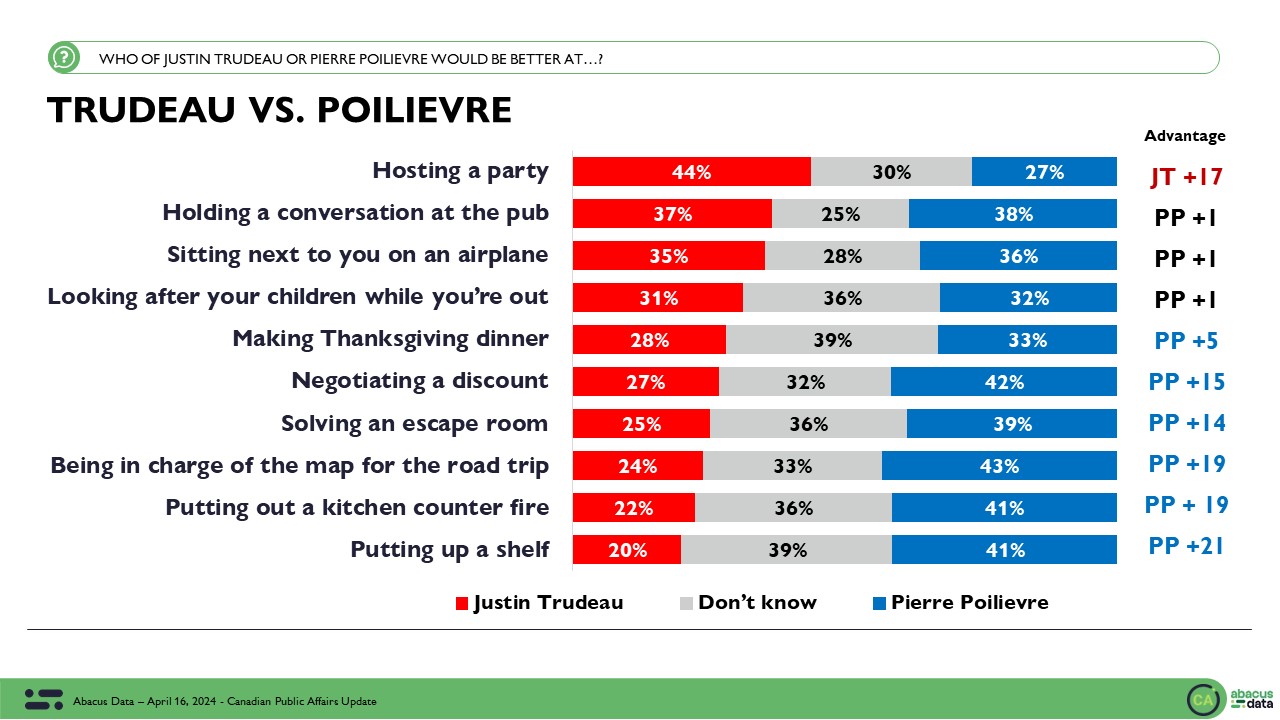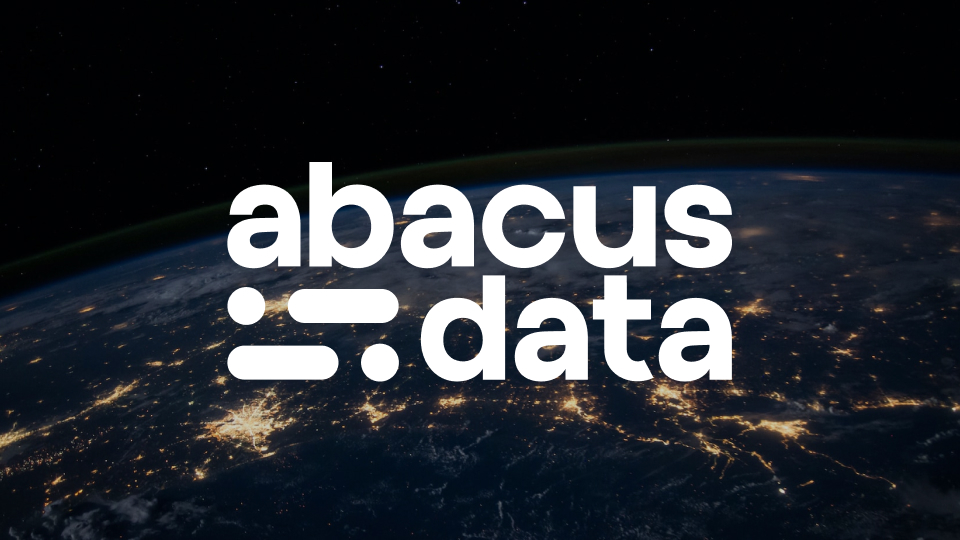It’s a close three-way race in Newfoundland and Labrador as 63% disapprove of the provincial government
November 2, 2016

On the eve of Dwight Ball and the NL Liberals’ one year election victory anniversary, Abacus Data and VOCM News asked residents of Newfoundland and Labrador how they feel about the direction of the province, their political leaders, and the economy. Over the next three days we will be releasing results of a survey of 604 NL residents by phone and online (300 by phone, 304 online).
THE HORSE RACE
• Across the province, 23% of eligible voters in NL would vote Liberal followed by the NDP at 22% and the PCs at 19%. 31% of respondents said they were undecided.
• If the election was held today, the results would be close with 36% voting Liberal, 34% voting NDP, and 29% voting PC. This represents a 21-point drop for the Liberals from the results of the 2015 provincial election, a 22-point increase for the NDP, and a marginal, 1-point drop for the Tories.
• Compared with the 2015 provincial election, only 38% of those who voted Liberal in 2015 say they would vote Liberal today. 18% would vote NDP, 10% would vote PC and 30% are undecided. The NDP and PC Party have kept more of its support from the previous election.
• Regionally, the NDP leads in St. John’s and on the Avalon Peninsula, the Tories and Liberals are tied in the eastern and central region of NL, while the Liberals lead in the western region of the island and in Labrador.
• NDP support is concentrated among those under 40 while the Liberals lead among those over 45.






LEADERSHIP FAVOURABILITY
• Residents of Newfoundland and Labrador are not overly positive about any of their political leaders. 53% have a negative impression of Premier Dwight Ball, only 16% view him favourably. Former premier and PC Leader Paul Davis, who recently announced he is stepping down as leader, is viewed positively by 21% and negatively by 32%. NDP Leader Earle McCurdy’s impression is more neutral with 19% having a positive impression and 22% having a negative impression. Positive impressions are down significantly for all three leaders since our last poll near the end of the 2015 provincial election.

DIRECTION OF THE PROVINCE AND APPROVAL OF PROVINCIAL GOVERNMENT
• Six in ten NL residents (60%) feel the province is heading off on the wrong track, a massive swing compared to a year ago when only 25% felt that way. Only 19% of NL residents today feel the province is headed in the right direction.
• The sour mood of NL residents about the province overall extends to the provincial government. 63% disapprove of the job performance of the provincial government compared with 22% who approve. 11% neither approve nor disapprove. Of note, 56% of those who voted Liberal in 2015 disapprove of the provincial government’s job performance, only 32% approve.
• The survey also asked respondents to rate the premier’s performance in several areas. Despite the challenges caused by the province’s finances, Premier Ball gets the highest marks for his performance managing the budget. Six in ten (62%) rate his performance as at least acceptable (62%).
• Respondents were split on his handling of education (48% acceptable or better) and health care (48% acceptable or better).
• Premier Ball was rated lowest when it comes to his handling of the economy (35% acceptable or better) or his level of openness and accessibility (42% acceptable or better).



WOULD THINGS BE BETTER IF THE PCs AND PAUL DAVIS WON IN NOVEMBER 2015?
• We asked respondents whether things would be better now, worse than they are now, or no different if the PC Party and Paul Davis had won the last provincial election. Most (53%) felt that things would be about the same as they are now had the PCs won the election while 29% think things would be better while 18% think things would be worse.
• Not surprisingly, those who voted PC were most likely to think things would be better while those who voted Liberal were most likely to think things would be worse. However, one in five (20%) of those who voted Liberal in 2015 said that things would be better had the PCs one, demonstrating some regret in their vote choice about a year ago.

WHICH PARTY WILL WIN THE ELECTION IN 2019?
• Although the next election is far off, more NL residents think that the PC Party will win the next election than do of the Liberals. 33% think the PC Party will win the next election compared to 23% who picked the Liberals and 9% who picked the NDP. 35% are unsure.

THE UPSHOT
A year is a long time in politics and much has changed since Dwight Ball and the Liberals were elected in a landslide in November 2015. Our first survey of Dwight Ball’s tenure finds a gloomy mood in Newfoundland and Labrador. Most feel the province is headed in the wrong direction, only one in five approve of the job performance of the provincial government, and two thirds feel the Premier has done a poor job managing the provincial economy. Support for the Liberals among committed voters is down 21-points since the 2015 provincial election.
Despite this difficult opinion environment for the governing Liberals, the party is still competitive with the opposition parties, statistically tied with the NDP and seven-points ahead of the PCs. Many voters are understandably undecided about how they would vote if an election was held today. Moreover, only a minority feel that the province would be better off had the PCs and Paul Davis been re-elected last November.
The fallout from the provincial budget continues and severely hurt the Premier’s personal numbers. Most NL residents have a negative impression of him while only 16% view him positively. One saving grace is that people are not overly positive about any of the alternatives, including the NDP’s Earle McCurdy, despite the NDP being only 2-points behind the Liberals in vote intention.
Despite the challenges the provincial government and Premier Ball face, most residents do recognize the effort the government is making to manage the province’s massive deficit. It’s telling that Premier Ball gets the highest grades for his handling of the budget. Residents are not enthusiastic about his performance, but most at least describe it as acceptable – some good news in what is a pretty bad poll for the government.
For the PC Party, the results are also sobering. Despite a rapid descent in public approval for the Ball government, PC support has remained static. Yes, more people think the PCs will win the next election but only 3 in 10 think the province would be better off had the PCs won the last election and the pool of accessible PC voters is unchanged since the election last year. Finding the right leader who can offer a compelling change narrative and turn the page from the previous PC government will be important if the PCs are going to make Dwight Ball a one-term premier.
The NDP has the most to celebrate in this numbers. They are statistically tied with the Liberals and their leader is the most popular, or perhaps, the least unpopular. But the NDP has been here before. Its support increased the last time the public soured on the Dunderdale government only to see that support erode after internal division and emergence of Dwight Ball as the primary alternative to the PCs. The challenge for the NDP remains positioning the party as a government in waiting as opposed to a place to park one’s support in between elections.
METHODOLOGY
The hybrid online/telephone survey was conducted with 604 eligible voters living in Newfoundland and Labrador. 300 interviews were conducted with a random sample of residents by telephone. 304 interviews were conducted online with panelists recruited from Leger’s research panel. The survey was completed from October 20 to 27, 2016.
The margin of error for a probability-based random sample of 600 respondents using a probability sample is +/- 4.1%, 19 times out of 20.
The data was statistically weighted according to census data to ensure that the sample matched population of Newfoundland and Labrador. The tables within this report detail the weighted and unweighted counts for the sample. Note the small sample sizes when reviewing results in subgroups.
ABACUS DATA INC.
We offer global research capacity with a strong focus on customer service, attention to detail and value added insight. Our team combines the experience of our Chairman Bruce Anderson, one of Canada’s leading research executives for two decades, with the energy, creativity and research expertise of CEO David Coletto, PhD.



